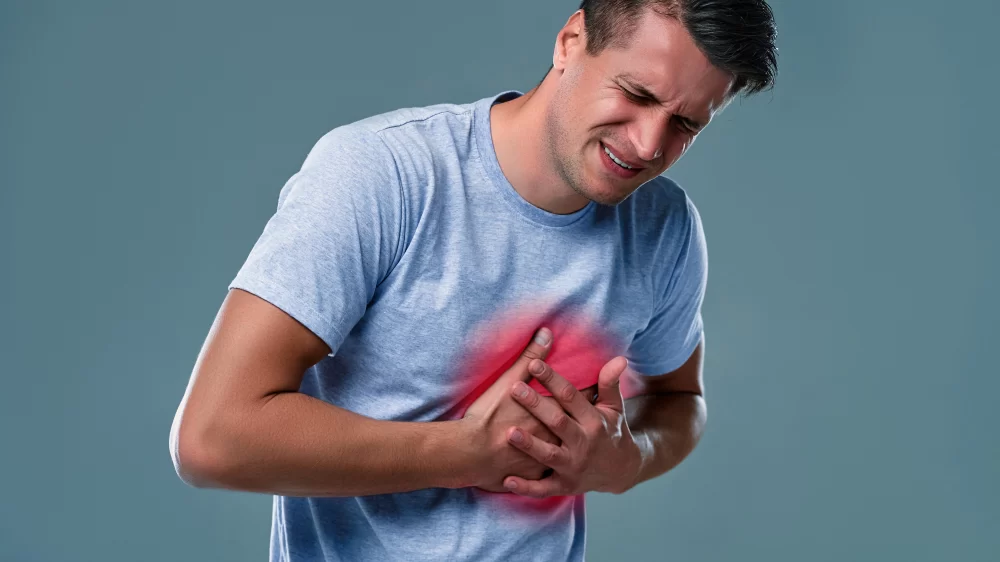Heart Disease Recovery Tips for Heart Attack Survivors: Rebuilding Your Health
- Understanding Heart Attack Recovery
- The Importance of Lifestyle Changes in Recovery
- Exercise and Physical Recovery After a Heart Attack
- Dietary Changes for Heart Health
- Emotional and Mental Recovery After a Heart Attack
1. Understanding Heart Attack Recovery
Recovering from a heart attack is a long and gradual process that requires a combination of medical care, lifestyle adjustments, and emotional support. Heart disease recovery tips for heart attack survivors can guide you through this difficult journey and help you regain strength, confidence, and a better quality of life.
The road to recovery starts with understanding that heart attack survivors often face several physical and emotional challenges. While the immediate focus is on survival and medical stabilization, the next steps involve managing risk factors and preventing further heart complications. Proper recovery and rehabilitation are essential to minimize the risk of another heart attack and to rebuild your overall health.
2. The Importance of Lifestyle Changes in Recovery
One of the most important heart disease recovery tips for heart attack survivors is the need to make significant lifestyle changes. Modifying your habits can greatly improve your heart health and reduce the chances of future heart attacks. Key lifestyle changes include regular exercise, stress management, and avoiding harmful habits like smoking.
For example, after his heart attack, Steve, a 52-year-old survivor, made the decision to quit smoking and cut down on alcohol. He also worked with his doctor to address his high blood pressure and cholesterol. By making these lifestyle changes, Steve improved his heart health and was able to return to work, feeling better than before.
In addition, learning how to manage stress is crucial for heart attack survivors. Studies have shown that chronic stress can worsen heart disease, so it’s important to incorporate relaxation techniques like deep breathing, meditation, or yoga into your routine.
3. Exercise and Physical Recovery After a Heart Attack
Exercise plays a vital role in heart disease recovery, especially for heart attack survivors. While it’s important to consult your doctor before starting any exercise program, physical activity is essential for strengthening the heart, improving circulation, and increasing stamina. Cardiologists typically recommend a gradual return to exercise, beginning with light activities such as walking or gentle stretching.
For instance, Mary, a 60-year-old heart attack survivor, began her recovery with short walks around her neighborhood. Over time, she was able to increase the duration and intensity of her workouts, eventually taking up swimming. Regular physical activity helped Mary lower her blood pressure, improve her cholesterol levels, and feel more energized overall.
While exercise is crucial, it’s equally important to listen to your body. Take your time with your recovery, and remember that consistency is key. Overexertion early in the recovery phase can lead to setbacks, so it’s essential to pace yourself.
4. Dietary Changes for Heart Health
Diet plays a central role in heart disease recovery, particularly after a heart attack. Incorporating heart-healthy foods into your diet can help lower cholesterol, reduce blood pressure, and support overall cardiovascular health. Focus on eating a balanced diet rich in fruits, vegetables, whole grains, lean proteins, and healthy fats, such as those found in fish, nuts, and olive oil.
For example, Tom, a 55-year-old heart attack survivor, made dietary changes after his heart attack by replacing saturated fats with healthier options like avocado and almonds. He also increased his intake of fiber-rich foods like oats and beans. As a result, Tom successfully managed his cholesterol levels and lost weight, significantly reducing his risk of another heart attack.
Additionally, limiting sodium intake and avoiding processed foods can also help control blood pressure, which is crucial for heart attack survivors. Many heart disease recovery tips emphasize the importance of working with a nutritionist or dietitian to create a personalized eating plan that supports your heart health goals.
5. Emotional and Mental Recovery After a Heart Attack
Heart attack survivors often experience emotional and mental challenges during their recovery process. Feelings of anxiety, depression, or fear of another heart attack are common, and it’s important to address these emotional aspects of recovery. Psychological support, whether through counseling, support groups, or therapy, can help you cope with these feelings and improve your mental well-being.
For example, after his heart attack, Daniel, a 47-year-old man, struggled with anxiety about his health. He joined a support group for heart attack survivors, where he connected with others who had gone through similar experiences. This sense of community helped Daniel feel more confident in his recovery and provided emotional support that was essential to his healing process.
Remember that emotional recovery is just as important as physical recovery. Don’t hesitate to reach out for help when needed, whether it’s talking to a counselor, joining a support group, or simply confiding in family and friends.





















